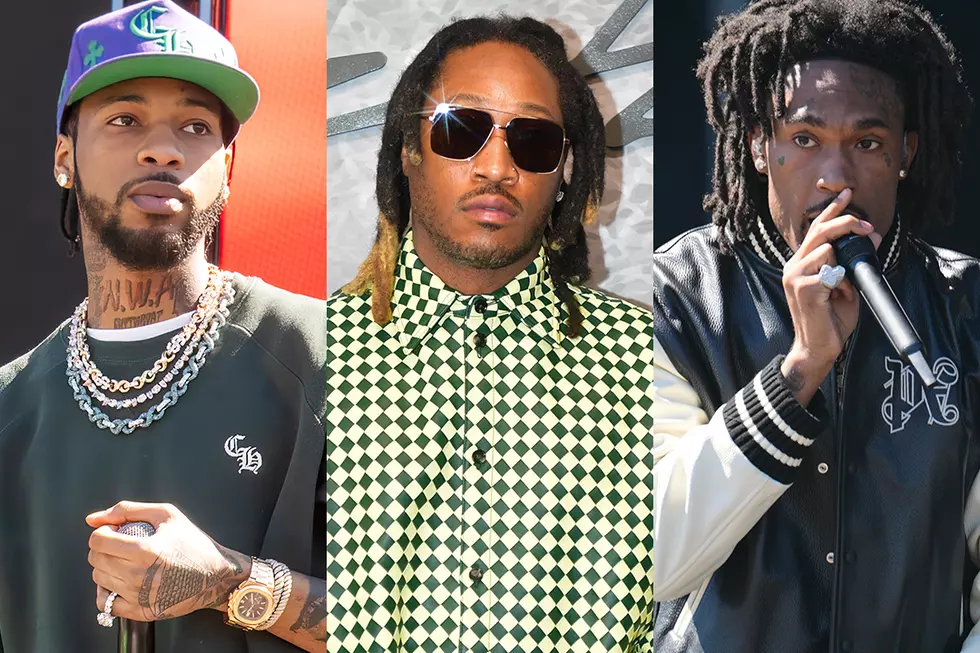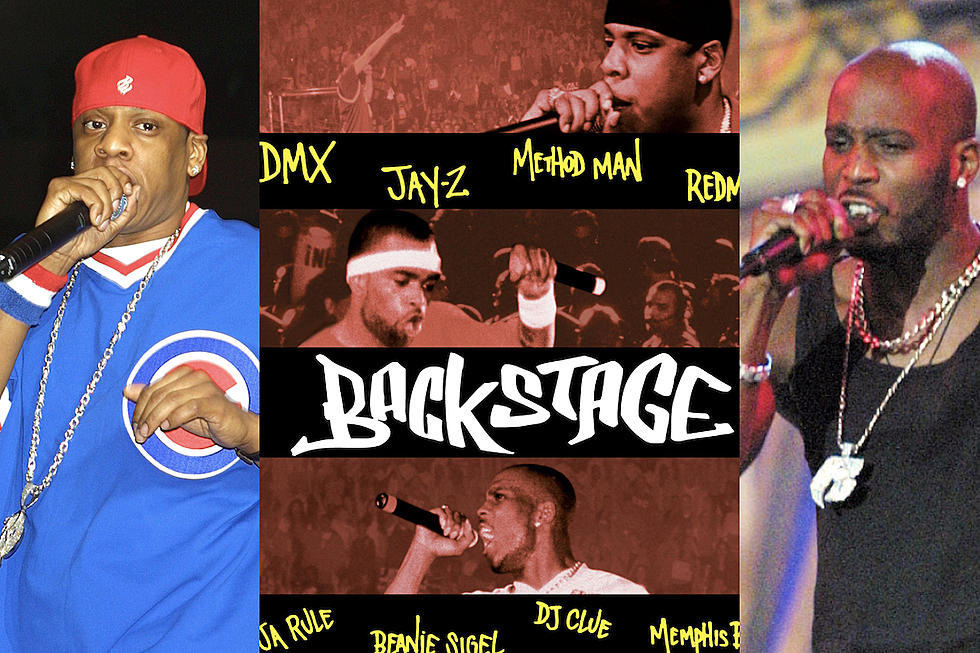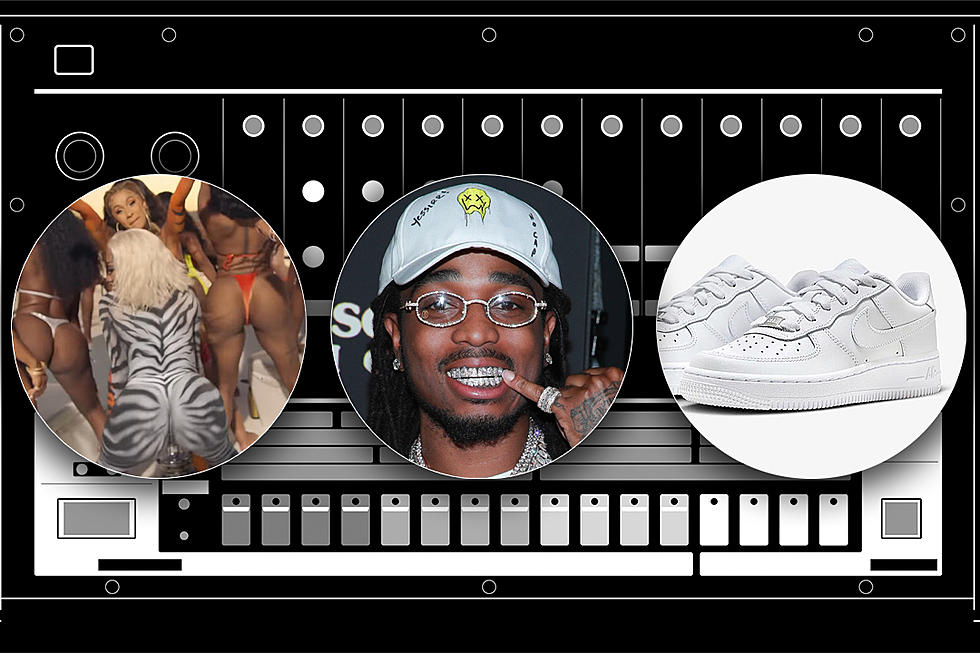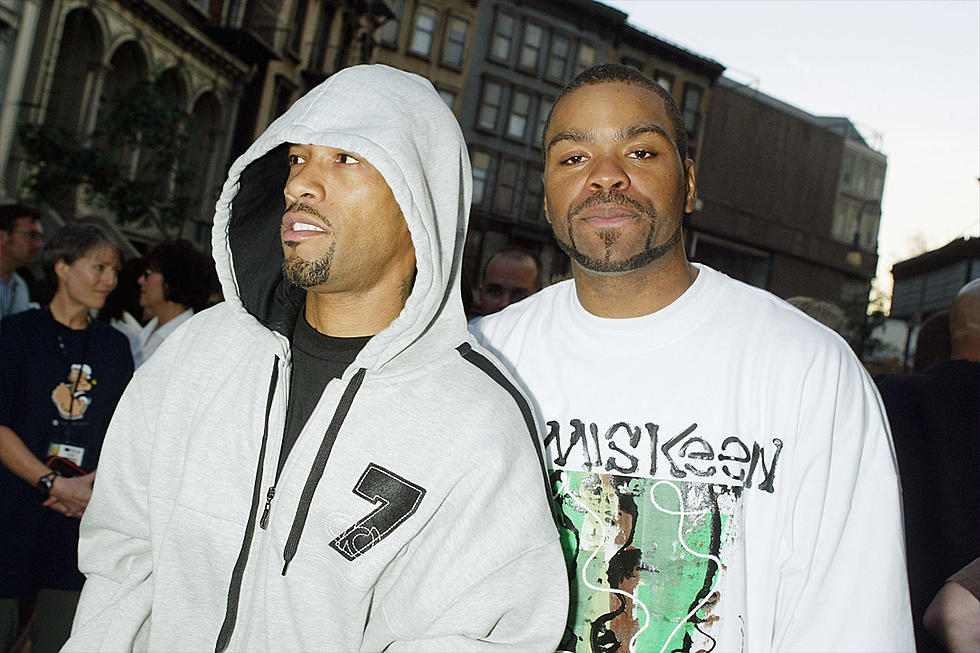Mack Wilds and Method Man Share a Hip-Hop Story That Must Be Told in ‘The Breaks’
Here's a little story that must be told. The year was 1990; the setting, New York City; the VH1 made-for-TV movie, The Breaks.
Crack had the urban community in a sling, New Jack was in full swing and Michael Jordan hadn't yet become king. Simply put, times were vastly different from today. The vibe of the street was edgy and urgent, with danger lurking around every corner. But in addition to the decadence that was rampant in the Big Apple, there was a new musical genre called hip-hop that was storming into the '90s with a vengeance.
Hip-hop may have been the undisputed sound of the streets, but it had yet to fully blossom into the cultural phenomenon that it would later become. The Breaks, which stars the likes of Mack Wilds, Afton Williamson, Wood Harris, Method Man, David Call and Antoine Harris, attempts to hark back to this era and the result is one of the best depictions of urban culture and the business of hip-hop in recent memory.
Thanks to a solid start from screenwriter and director Seith Mann and writer Dan Charnas, critics unsure of what to expect from The Breaks are instantly drawn to the edge of their seat as a Brooklyn resident is marked and savagely beaten with wooden objects outside of a housing project at the behest of a character we come to know as Ahm (played by Antoine Harris), a neighborhood tough guy with a disdain for extensive dialogue. The reason for the beatdown remains unknown, but we're instantly aware that the guy with the gruesome scar on his face is as callous as they come and will play a central role in the plot.
Ahm may be a major figure, but remains in the shadows in comparison to lead characters Nikki Jones (Afton Williamson), an ambitious college graduate that has traded in her plans for law school for a one-way ticket into the rap game, and DeeVee (Mack Wilds), an aspiring DJ and producer in search of the perfect MC to bring his music to life.
While both characters are relentless in their pursuit of an entry into the industry, various factors hinder their progress including Nikki's pessimistic boyfriend, Dave, and DeeVee's father, Darryl (Method Man). Nikki's been promised a position at Fouray Records, owned by rap mogul Barry Fouray (Wood Harris). She shows up to the label offices unannounced, but is given the cold shoulder before being removed from the premises by security. Visibly discouraged and without a place to stay, Nikki takes refuge with her boyfriend, David Aaron (David Call), an intern at a New York radio station who is also having trouble gaining traction within the industry. We are then introduced to DeeVee, whose makeshift recording session gets interrupted by his father. Unfortunately, he shows no regard for his son's passion for music, literally scoffing at the idea of steering the career of an artist.
Nikki, undeterred by her initial rejection, decides to show up to a nightclub that Barry Fouray is known to frequent in hopes of receiving a position at his label. But Fouray, surrounded by a harem of beautiful women and alcohol, isn't interested in Nikki's pleas for his attention. This prompts her to throw a drink on Fouray out of frustration. The move is bold, but that display of grit is exactly what lands Nikki an entry into Fouray Records -- albeit as a janitor -- which she takes full advantage of, using her access to prove her worth to the label.
Deevee, who lives in Queens, but decides to frequent his old neighborhood of Bed-Stuy, Brooklyn in search of a dope MC, catches a lead when he's referred to a rhymer named Ahm -- this is far from your typical rap hopeful. The leader of a murderous drug crew, Ahm gets wind of his presence in the projects and sends for him via his team of goons. DeeVee may be interested in talking rap, but Ahm and company are more interested in riddling him with bullets than rhymes, sending the guy scurrying back to calmer ground.
Over at Fouray Records, Nikki is quickly rising in the ranks. She's won favor with Barry Fouray's right-hand man after motivating a rapper by the name of D-Rome into giving one of the more inspiring performances of his career. However, she continues to endure discrimination due to her gender. From the manner in which her superiors address her to their lack of respect for her ideas, Nikki's plight shines a light on the oft-overlooked struggle that women face in the hip-hop industry in comparison to their male counterparts. Nikki may be the prototypical go-getter and a character that should empower young, black women looking to break in the industry, but she is not without her flaws. Regardless of the chinks in her armor, you still root for her to win.
The dichotomy between Nikki and her boyfriend is also an underlying theme that gives the plot more meat. David Aaron, who is unhappy with the R&B and classic soul format at the radio station he interns at, is adamant about implementing hip-hop to the playlist, but hits a stone wall in the form of resident jock, Sampson Green (Russell Hornsby). After continuously shooting down David's demands, tempers reach a boiling point, leading him to quit the gig altogether. While David, a Caucasian male with a high-powered executive in the music industry for a father, flounders in his attempts to make an impact in hip-hop, Nikki flourishes without that backing, which eventually puts a strain on their relationship and leaves viewers wondering if there will be trouble in paradise.
While Nikki may likely emerge as the fan favorite out of this cast of characters, the unlikely partnership between DeeVee and Ahm is the main selling point of The Breaks and is a microcosm of the long-running relationship between the mean streets and hip-hop. From DeeVee venturing into the den of wolves that is pre-gentrification Brooklyn and convincing Ahm to even give rap the time of day to serving as his alibi after committing a murder, his character is a nod to a time when young hip-hop hopefuls had to closely toe the thin line between rap and reality.
Whereas programs like Empire and the defunct UPN show, Platinum, are exaggerated takes on the culture and business of hip-hop, The Breaks is a more pragmatic view of the rap industry, from both sides of the coin. Everything from the score -- provided by rap legend DJ Premier -- to lyrics by Phonte and characters inspired by unheralded industry legends like Jessica Rosenblum (the white door lady at the club) prove that Mann and Charnas, whose 2010 book, The Big Payback: The History of the Business of Hip-Hop, loosely inspires the film, had authenticity high on their list of objectives during the making of The Breaks.
Charnas, also a producer of the show, has also confirmed tentative plans for The Breaks to be turned into a full series, which should explain the various loose ends that were left to be tied at the end of the premiere. After watching the two-hour film, The Breaks serves as a great moment for the hip-hop community and could ultimately find itself in the same realm of programs like Yo! MTV Raps, which helped change the game.
See 20 Best Albums of 2015
More From XXL









